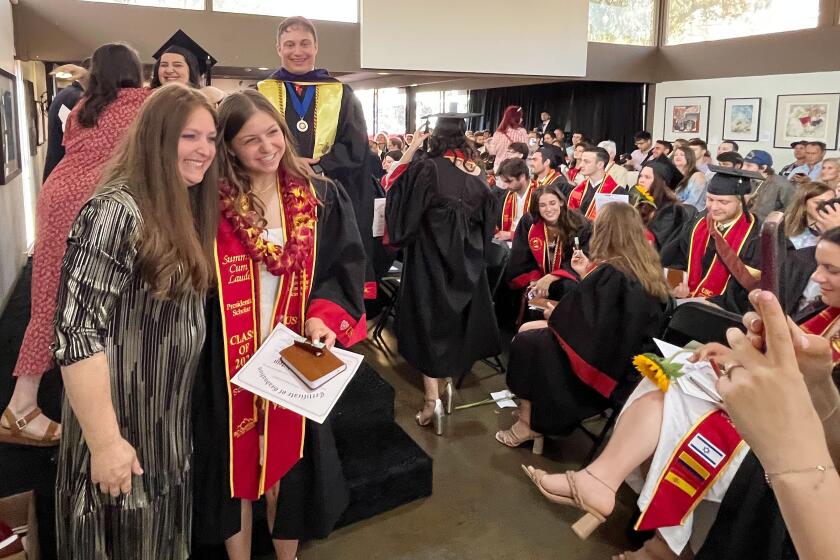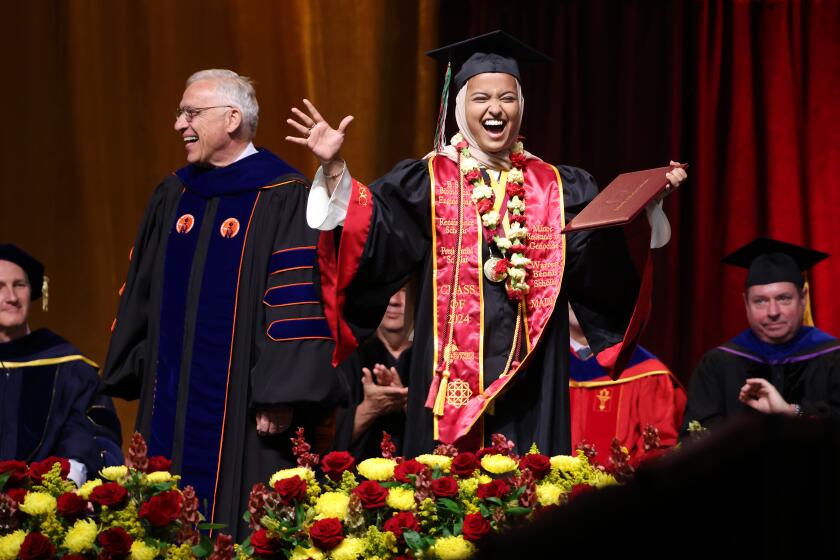Oliphant on Degrees
In a piece on higher education (“A College Degree Is Many Things,” Op-Ed Page, April 11), Robert Oliphant takes the academic world to task for the quality of education it produces today, and seems to side with Secretary of Education William Bennett in pushing for standardized achievement testing. On what would this testing be based? Though Oliphant is a bit vague on the specifics, his basic curriculum would, except in certain subjects (“mathematics, foreign languages and the physical sciences”) become a forced march in heavy reading.
I admire Prof. Oliphant as a novelist. I respect him as a colleague at Cal State Northridge. But I believe that he utterly misperceives the problems of higher education today.
Oliphant suggests that not just the students, but college professors themselves are unlettered. He accuses professors of being “anti-literacy, since they neither encourage voluminous reading nor do much of it themselves.” His source for the charge is columnist Michael Kinsley, a curious choice of authority on this point. I presume Oliphant reads voluminously. I know that I do. I do not know a single colleague in my own field who does not. Whether or not professors today “encourage” reading, they certainly require it. College courses in history commonly mandate that students read 10 or 12 books. What is Oliphant’s source on reading lists? To correct his misimpression, all that he must do is browse the assigned reading shelves in any good university bookstore.
Much else is wrong with Oliphant’s piece, but the sum total of it adds up to something which is very fashionable right now: bashing the professoriate. Most of the bashing is done by professors themselves. Oliphant has merely joined the company of Allan Bloom. Both men have much to say. Some of what they have to say is even correct. But to treat the academic enterprise as some sort of flippant rip-off is dead wrong.
Oliphant wants students to read. But what should they read? Answering the question, and assessing the results, is why the university exists.
JOHN J. BROESAMLE
Professor of History
Cal State, Northridge



